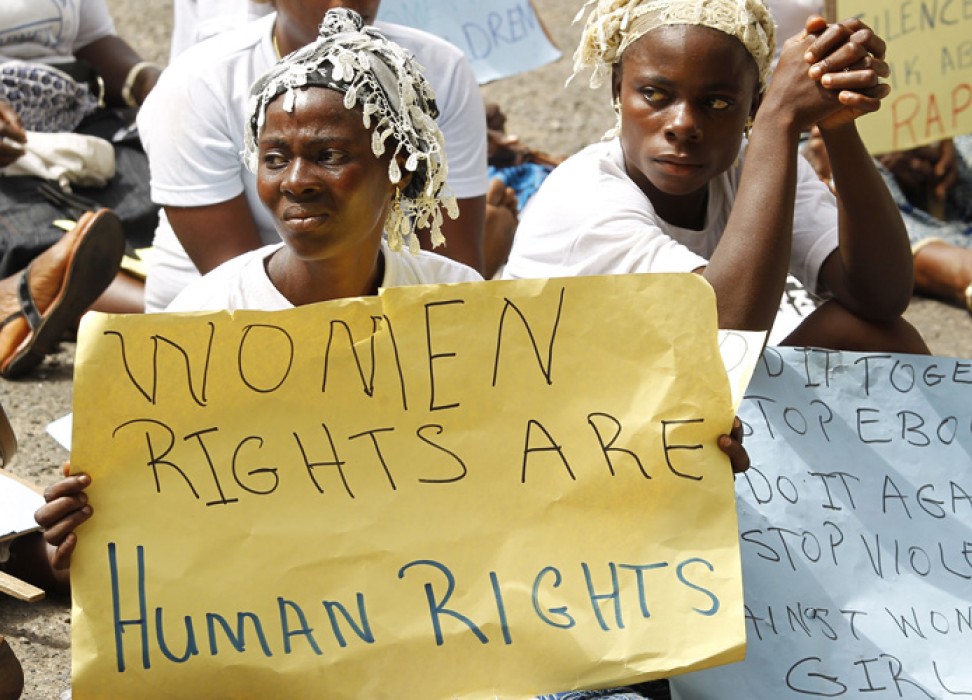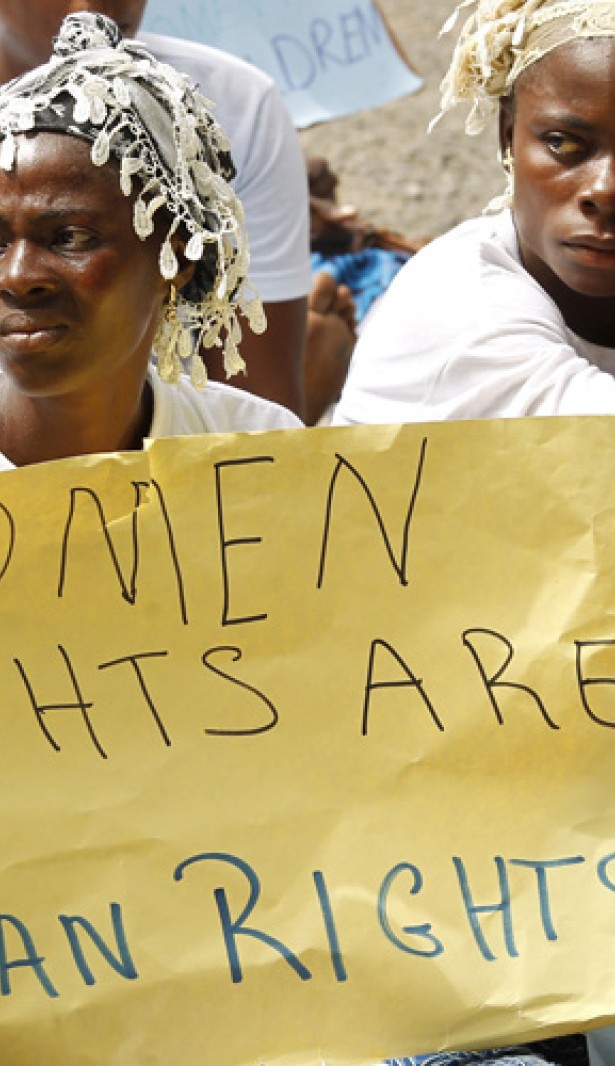New UN Human Rights office continues work in Liberia
17 May 2018

Although the work of the United Nations Mission in Liberia (UNMIL) is at an end, the work of human rights continues, with the opening of the UN Human Rights Office in Liberia.
“The genesis of the office came from the need to continue to address concerns of human rights promotion and protection by national actors,” said Uchenna Emelonye, Representative for the UN High Commissioner for Human Rights in Liberia who heads the new country office. “Our partners…unanimously agreed that further assistance was needed to support the government and strengthen institutions and civil society organizations as the country transitions.”
The office, which officially opened in April, will focus on several areas of human rights work including improving support to civil society on addressing human rights issues, and improving capacity of national institutions to promote, protect and monitor human rights, said Human Rights Officer Melvin Nyanway.
“Liberia has a national human rights commission established (Independent National Commission on Human Rights), but it lacks the capacity to push for human rights in a politically sensitive context like Liberia,” he said. “It lacks operational, political and resource capacity such an institution needs. It is our job to help give them teeth to bite, as we say.”
The office will also continue its focus on sexual- and gender-based violence, an area that made up part of its original mandate on the mission. Despite progress made, Liberia still continues to face challenges when it comes to prosecuting perpetrators of sexual-violence based crimes, Emelonye said. People have little faith in the judicial system, which is seen as corrupt and the process slow, he added.
But, the human rights office continues to make progress. For example, shortly after the closure of UNMIL, the newly constituted stand-alone office, presented a DNA analysis machine to the Liberian Minister for Gender, Children, and social protection. This machine will be used to analyse forensic evidence of rape within the country to aid in prosecution. In the past, Liberia had little capacity to do DNA analysis, sending any DNA evidence collected to Ghana for scrutiny. This was an added expense and a time-consuming process, which in turn underpinned some of the pressure to not prosecute the cases, Emelonye said.
“It illustrates some of the real-life impact of these challenges,” he said.
In addition, as part of its capacity building efforts with the government, the office will continue to monitor and push for stronger implementation of Liberia’s rape prevention efforts. Liberia does have a rape law, but its implementation has been poor. Many rape suspects are detained before trial, but few are convicted, Emelonye said.
“Failure to protect the human rights of all citizens and the weak, slow functioning of the judicial system serves to erode and undermine confidence in the rule of law,” he said.
Liberia, the first independent African state, went through two civil wars in the 14 years between 1989 and 2003. The conflicts killed more than 250,000 people, mainly civilians, and led to a break down in the rule of law. In addition to the civil conflict, the Ebola crisis of 2014 severely tested the country’s still weak government institutions. Ebola killed more than 4,000 in the country.
The United Nations Mission in Liberia (UNMIL) was deployed in 2003 after the signing of the comprehensive peace agreement. It had a mandate for peacebuilding and reconciliation, but took on additional roles related to emergency health. The Human Rights and Protection Section, as it was then known, was established at the same time. UNMIL closed its operations on 30 March 2018.
The UN Human Rights Office presence in Liberia is time-limited: its wide-ranging agreement with the Liberian government ends in six years.
17 May 2018

